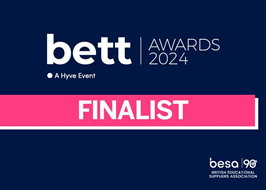Intent, implementation & impact
Intent
- Students are prepared for examinations because they are confident with logical thinking and programming principles. Demonstrated through a range of working programs they have created.
- Students are interdependent because self-management is important for the next stage of their lives. Demonstrated by them knowing how and when to work on their own, but also when to ask for help.
- Students don't need to wait for their teacher to explain the next concept or their peers to catch up, because they all learn at different speeds. Demonstrated by the workshop environment in the classroom.
- Students can use the "language of programming" confidently because this creates the most effective programmers. Demonstrated by the way they can articulate how their programs work and describe the problems they face.
Implementation
- The teacher does not teach the whole class at the same time. Instead the teacher is a facilitator and assessor to individual students.
- Students have a website that they can use independently to make progress in their learning at a pace that is right for them.
- Students are supported with videos, example programs, flowcharts, Parsons problems, syntax guides, their peers and their teacher.
- Using video as the primary teaching approach allows short, focused explanations with students able to watch again and again.
- Students can pause a video and ask their teacher for further explanation as necessary.
- Teachers intervene to offer support, ensure timely progress and give feedback to inform future programs.
- The learning journey is divided into progressive levels that build on each other reducing cognitive load.
- Levels are organised into sets of three, identifying key end points at which students historically have struggled to make further progress unless these three key concepts are fully understood.
- Assessments at these key points allow teachers to identify when students need more practice or are ready to move on.
- The TIME approach (Try, Investigate, Make, Evaluate) is based on research and established pedagogies including PRIMM and Rosenshine principles.
- Programs are serious with a real-world context, similar to those found in examinations, with the pitch being a little higher in many cases for challenge.
- Practice programs are differentiated, indicated by their star value: one, two or three stars.
- Fun, additional programs to support the scheme are provided by Mission Encodeable.
- Progress of every student is tracked.
- Oral feedback is used because this ensures students reflect with their teacher and can make immediate improvements in their next program.
Impact
- Students achieve highly in examinations. This has been proven by the results students taught by Craig'n'Dave have achieved using this approach over many academic years.
- Students report favourably on their learning experience. They like the sense of independence and being in control of their own learning journey at a pace that is right for them.
- The teacher can spend more time reflecting with and supporting individual students than they could if they delivered programming from the front of the class to all students at the same time.
